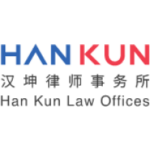-
Please briefly describe the current investment climate in the country and the average volume of foreign direct investments (by value in US dollars and by deal number) over the last three years.
Generally, Singapore has an open investment regime that is welcoming of foreign investment, and it has developed a cohesive economic development strategy that offers various grants and incentives to attract foreign investment.
Historically there is no overarching legislation pertaining to the review of or restriction of foreign investments. However, there are certain specific sectors that subject foreign investment to additional controls and restrictions.
Singapore has also recently enacted the Significant Investments Review Act 2024 which sets out a new investment management regime to regulate significant investments, be it local or foreign, into entities that are critical to Singapore’s national interests. Where an entity is designated as critical to Singapore’s national interests, it would be subject to certain ownership and control requirements.
As of November 2024, the most recent data available on the department of statistics of Singapore provides that the volume of foreign direct investment in Singapore is as follows:
- 2022 – S$ 2,618,994.2 million (US$ 2,033,862.21 million)
- 2021 – S$ 2,493,576 million (US$ 1,936,186.71 million)
- 2020 – S$ 2,149,710.5 million (US$ 1,669,185.50 million).
-
What are the typical forms of Foreign Direct Investments (FDI) in the country: a) greenfield or brownfield projects to build new facilities by foreign companies, b) acquisition of businesses (in asset or stock transactions), c) acquisition of minority interests in existing companies, d) joint ventures, e) other?
Foreign direct investment in Singapore is commonly structured as an acquisition of a Singapore private company, a joint venture or a minority investment in an existing company.
If the target is not a public company listed on the Singapore Exchange Securities Trading Limited (“SGX”), an acquisition is typically structured as either an acquisition of shares in the share capital of the private company or an acquisition of the business and assets of the private company.
The acquisition of a Singapore public company listed on SGX is typically structured as follows: general offer, scheme of arrangement or a voluntary delisting from the SGX following the completion of the acquisition of a stake in the public company.
A minority investment in an existing company in Singapore can take the form of a subscription of shares in the share capital of the private company, or the issuance of convertible instruments issued by the private company, or the acquisition of shares (i.e. share transfer) from existing shareholders of the private company.
For joint ventures, the most common forms of joint ventures would be the contractual alliance (i.e. contractual arrangement between the parties setting out the terms of the cooperation) or corporate joint ventures which involves the incorporation of a company by the parties, who become members of the joint venture company. A private company is the most common form of corporate entity that is used for a corporate joint venture.
Singapore is also a leading destination for greenfield foreign direct investment within the Association of Southeast Asia Nations trade bloc. In 2022, the total value of greenfield investments in Singapore was USD 16,228 million according to the United Nations Conference on Trade and Development1.
Greenfield investments refer to the form of foreign direct investment where a parent company starts a new venture in a foreign country by constructing new operational facilities from the ground up.
Footnote(s):
1 https://unctad.org/system/files/official-document/wir2023_en.pdf
-
Are foreign investors allowed to own 100% of a domestic company or business? If not, what is the maximum percentage that a foreign investor can own?
In general, there are no restrictions, controls or requirements on foreign investors’ acquisition of shares in companies or businesses registered in Singapore, save for in certain sectors where foreign investment may be subject to restrictions or controls which may be imposed by statute, or the licensing regime implemented by the relevant regulatory authority.
Foreign investments in Singapore are restricted in sectors such as residential real estate and media (i.e. broadcasting and newspaper) industries. The aforesaid restrictions include limitations on the type or quantity of shares a foreign entity may hold.
Foreign investment controls may apply due to the nature of the licensing regime in regulated sectors whereby licences are required to perform regulated activities and the ownership and change of control of licensed entities may be subject to the approval of the relevant regulatory authority (“Regulated Sectors”). The licensing regime and oversight exercised by the relevant regulatory authority in these sectors apply regardless of whether it has foreign or local ownership. The Regulated Sectors include financial services, legal, telecommunications, media, utilities and transport.
Singapore has also recently enacted the Significant Investments Review Act 2024 which sets out a new investment management regime to regulate significant investments, be it local or foreign, into entities that are critical to Singapore’s national interests. Where an entity is designated as critical to Singapore’s national interests, it would be subject to certain ownership and control requirements.
-
Are foreign investors allowed to invest and hold the same class of stock or other equity securities as domestic shareholders? Is it true for both public and private companies?
Subject to the restrictions set out in our response to Question 3, foreign investors can hold the same class of shares as domestic shareholders in private and public companies.
-
Are domestic businesses organized and managed through domestic companies or primarily offshore companies?
Domestic businesses are typically organised and managed through domestic companies.
-
What are the forms of domestic companies? Briefly describe the differences. Which form is preferred by domestic shareholders? Which form is preferred by foreign investors/shareholders? What are the reasons for foreign shareholders preferring one form over the other?
The main types of domestic companies are as follows:
- Private company limited by shares – the company has a separate legal personality from its members and can have a maximum of 50 shareholders.
- Public company limited by shares – the company has a separate legal personality from its members and can have more than 50 shareholders.
- Variable capital companies – this corporate structure is for investment funds and has flexibility in the issuance and redemption of its shares. It can pay dividends out of capital (as opposed to profits in a public or private company) which gives fund managers flexibility to meet dividend payment options.
In Singapore, the most common business structure is the company structure which is favoured by both domestic and foreign shareholders. As of 31 March 2023, companies comprise 71.7% of all live entities on the Accounting and Corporate Regulatory Authority of Singapore’s (“ACRA”) register2.
Foreign shareholders, similar to domestic shareholders, typically prefer the company structure as it is a separate legal entity that may sue and be sued in its own name. In general, this form is favoured as members of the company are not liable for the debts of the company and the liability of shareholders is limited to the amount that they contributed and/or the amount (if any) remaining unpaid on the member’s shares.
Footnote(s):
-
What are the requirements for forming a company? Which governmental entities have to give approvals? What is the process for forming/incorporating a domestic company? What is a required capitalization for forming/incorporating a company? How long does it take to form a domestic company? How many shareholders is the company required to have? Is the list of shareholders publicly available?
A. Incorporation Requirements
We have set out herein the key requirements for incorporating a company in Singapore:
1. Licences
Generally, licences are not required to incorporate a company in Singapore. However, as mentioned in our response to Question 3, certain business activities may require specific licences or permits to be obtained from the relevant regulatory authorities before a company can operate, such as financial services, legal, telecommunications, media, utilities and transport.
2. Directors
Directors in a Singapore company must be a natural person and at least 1 resident local director is required (e.g. a Singapore citizen, a Singapore permanent resident or a Singapore employment pass holder). A foreign person may be a director provided that there is at least 1 resident local director. The director must be at least 18 years of age with full legal capacity and is not disqualified from acting as a director. An undischarged bankrupt or a person who has been convicted of an offence involving fraud or dishonesty that creates an imprisonment term of 4 months or more can be disqualified to act as a director of a company.
3. Shareholders
A shareholder can be an individual or a legal entity, whether local or foreign.
For a private limited company, the minimum number of shareholder(s) is 1 and the maximum number of shareholders is 50.
A public limited company can have more than 50 shareholders. It is not necessary for a company to be listed on SGX to be considered a public company.
4. Company Secretary
At least 1 company secretary must be appointed within six months after the incorporation of the company. The company secretary must be a natural person who is a local resident in Singapore who is qualified to act as a secretary (e.g. a Singapore qualified lawyer or a public accountant). It is important to note that if the company only has 1 director, that director cannot also act as the company secretary.
5. Auditors
A company must appoint an auditor within three months from the date of incorporation unless it is exempt from audit requirements.
6. Share capital
The minimum paid-up capital for registration of a Singapore company is S$1 and this can be increased any time after the incorporation of the company. A company’s paid-up capital may also be denominated in USD. The share capital can comprise different class of shares e.g. ordinary shares or preference shares.
7. Registered Address
A company must have a local registered address in Singapore. The registered address must be a physical address and must not be a P.O. box.
B. Incorporation Process
The regulatory authority that administers the incorporation of companies is ACRA and the incorporation process takes place online on ACRA’s Bizfile e-portal. A Singaporean individual or local entity may use their SingPass or CorpPass to access the portal. Overseas applicants may engage the services of a registered filing agent (e.g. law firm, accounting firm or corporate secretarial service firm) to assist in the incorporation process.
1. Name reservation
To set up a company in Singapore, the proposed name of the company must be approved, and such approval is obtained by filing an application with ACRA. A search on the Bizfile e-portal may be conducted to determine if the proposed business name has been taken. Generally, the name approval may be obtained promptly unless the name contained certain words (e.g. “bank” or “law”) that may require the review and approval of another regulatory authority. In such an instance, the approval process may be delayed. Also, the proposed name cannot be vulgar or obscene.
An approved name will be reserved for 60 days from the date of application and the name reservation may be extended for a further 60 days by filing an extension request before the expiry date.
The application fee for name reservation as of November 2024 is S$15.
2. Company incorporation
Once the name and registered address has been chosen and the company constitution is ready for submission the company can be incorporated upon the provision of key information (e.g. directors’ and shareholders’ particulars, company share capital information) on the Bizfile e-portal.
The incorporation fee as of November 2024 is S$300. Once the fee has been paid the company is generally instantly incorporated unless the application is sent for further review before approval is granted. The review period could take between 14 days to 60 days.
Is the list of shareholders publicly available?
In Singapore, the information of the directors and shareholders of a company is public information. Any person may purchase a business profile of the company on ACRA Bizfile and the information that is recorded with ACRA will be available on the business profile document.
-
What are the requirements and necessary governmental approvals for a foreign investor acquiring shares in a private company? What about for an acquisition of assets?
The acquisition of shares or the business and assets of a Singapore private company is generally not regulated in Singapore. However, certain acquisitions may require regulatory review and approval:
- A M&A transaction that is expected to result in a substantial lessening of competition within any market in Singapore;
- A M&A transaction involving a target company that is operating in certain sectors where foreign ownership restrictions apply as indicated in our response to Question 3; and
- A M&A transaction involving a licensed entity subject to change of control or change of management approval or notification requirements (for example a licensed financial institution).
-
Does a foreign investor need approval to acquire shares in a public company on a domestic stock market? What about acquiring shares of a public company in a direct (private) transaction from another shareholder?
Generally, foreign investments are not restricted in Singapore, subject to the restrictions set out in our response to Question 3. As such, unless the acquisition or investment is in a specific sector where foreign ownership restrictions apply, in general acquisitions by foreign investors are not subject to prior governmental or regulatory approvals other than customary anti-trust approvals.
Public M&A Transactions
M&A transactions involving an acquisition of shares in a public company listed on SGX (whether on the mainboard or catalist board (i.e. the secondary listing board)) have to comply with the Companies Act 1967 of Singapore if the target company is a Singapore-incorporated company, the requirements of the Securities and Futures Act 2001 of Singapore, the Singapore Code on Take-overs and Mergers (“Takeover Code”) and the SGX Listing Manual.
Depending on the nature of the public M&A transaction, prior notifications to, approvals from and/or waivers from the Securities Industries Council (“SIC”) that administers the Takeover Code and the Singapore Exchange Regulation (“SGX RegCo”) that administers the SGX Listing Manual, respectively, may be required.
Private M&A Transactions involving unlisted public companies
M&A transactions involving an acquisition of an unlisted Singapore public company that meets the following criteria are required to comply with the letter and spirit of the Takeover Code:
- More than 50 shareholders; and
- Net tangible assets of S$ 5 million or more.
This means that prior notifications to, approvals from and/or waivers from the SIC that administers the Takeover Code and the SGX RegCo that administers the SGX Listing Manual, respectively, may be required.
-
Is there a requirement for a mandatory tender offer if an investor acquired a certain percentage of shares of a public company?
A mandatory offer is triggered under Rule 14 of the Takeover Code when either:
- a person, whether by a series of transactions over a period of time or not, shares which taken together with shares held or acquired by persons acting in concert with it, carry 30% or more of the voting rights of the target company; or
- a person, together with persons acting in concert with it, holds not less than 30% but not more than 50% of the target company’s voting rights, and such person, or any person acting in concert with it, acquires additional shares carrying more than 1% of the target company’s voting rights in any rolling six-month period.
A person who purchases an option or derivative that causes that person to have a long economic exposure to changes in the price of securities will normally be treated as having acquired those securities.
Any person who breaches the thresholds which trigger a mandatory offer as a result of acquiring such option or derivative would have to enter into prior consultation with the SIC to determine if a mandatory offer is required and such terms of the offer.
-
What is the approval process for building a new facility in the country (in a greenfield or brownfield project)?
We set out below, on a non-exhaustive basis, the consents and licences required for a typical construction project in Singapore.
Before commencement of the project
Building works require the approval of the Urban Redevelopment Authority (“URA”) and the Building and Construction Authority (“BCA”) before the commencement of the project unless exempted by the Minister of National Development.
The following consents are required:
- Planning approval must be obtained from URA for the works;
- Building plan approval and structured plan approval, and a permit to carry out building works, must be obtained from the BCA;
- Depending on the type of project, permission may have to be sought from other relevant public authorities;
- Contractors carrying out any specified activity within a part of a channel carrying a water pipe with a diameter of 300 mm (or greater) runs must ensure that such activity is carried out in accordance with a plan approved by the Public Utilities Board (“PUB”); and
- Permits may also have to be obtained from the Land Transport Authority for activities such as:
- works within or near public areas;
- the closure of road and pedestrian crossings;
- using oversized vehicles on public roads; and
- the displayed of temporary directional signage.
During the project
When a project is completed, a Certificate of Statutory Completion (“CSC”) will be issued by the BCA. If there are remaining minor works to be undertaken that prevent this being issued, an application can be made to BCA for an inspection to be carried out to obtain a Temporary Occupation Permit (“TOP”), which allows the building to be occupied. Before applying for a TOP, certain requirements must be met, such as technical clearance from government departments including the PUB, URA and National Environment Agency.
On Completion
When the project is completed, an application can be made to BCA for CSC. This is issued within 7 working days from the date of application or if the submission is not in order, 7 working days from the date of full compliance with the requirements.
-
Can an investor do a transaction in the country in any currency or only in domestic currency? a) Is there an approval requirement (e.g. through Central Bank or another governmental agency) to use foreign currency in the country to pay: i. in an acquisition, or, ii. to pay to contractors, or, iii. to pay salaries of employees? b) Is there a limit on the amount of foreign currency in any transaction or series of related transactions? i. Is there an approval requirement and a limit on how much foreign currency a foreign investor can transfer into the country? ii. Is there an approval requirement and a limit on how much domestic currency a foreign investor can buy in the country? iii. Can an investor buy domestic currency outside of the country and transfer it into the country to pay for an acquisition or to third parties for goods or services or to pay salaries of employees?
Can an investor do a transaction in the country in any currency or only in domestic currency?
In Singapore, there is no general legal requirement for transactions to be undertaken in domestic currency (i.e. Singapore dollars). Parties to a transaction may transact in any currency that they contractually agree upon.
Is there an approval requirement?
There are no general regulatory approval requirements for the use of foreign currency in Singapore, and parties may transact in any currency that they contractually agree upon. However, there may be declaration requirements for the physical movement of currency in and out of Singapore if it exceeds certain amount pursuant to the Corruption, Drug Trafficking and Other Serious Crimes (Confiscation of Benefits) Act 1992 of Singapore.
Is there a limit on the amount of foreign currency in any transaction or series of related transactions?
There is generally no limit on the amount of foreign currency that can be used for transactions in Singapore. However, there may be declaration requirements for the physical movement of currency in and out of Singapore if it exceeds certain amount (please refer to our comments under the heading “Is there an approval requirement?” above).
Is there an approval requirement and a limit on how much foreign currency a foreign investor can transfer into the country?
In Singapore, there are generally no restrictions on the amount of foreign currency that can be brought into Singapore. However, there may be declaration requirements for the physical movement of currency in and out of Singapore if it exceeds certain amount (please refer to our comments under the heading “Is there an approval requirement?” above).
Is there an approval requirement and a limit on how much domestic currency a foreign investor can buy in the country?
In Singapore, there are generally no such approval requirements or limitations.
Can an investor buy domestic currency outside of the country and transfer it into the country to pay for an acquisition or to third parties for goods or services or to pay salaries of employees?
Yes, this is permissible as in Singapore, there are generally no such exchange controls. However, there may be declaration requirements for the physical movement of currency in and out of Singapore if it exceeds certain amount (please refer to our comments under the heading “Is there an approval requirement?” above).
-
Are there approval requirements for a foreign investor for transferring domestic currency or foreign currency out of the country? Whose approval is required? How long does it take to get the approval? Are there limitations on the amount of foreign or domestic currency that can be transferred out of the country? Is the approval required for each transfer or can it be granted for all future transfers?
Are there approval requirements for a foreign investor for transferring domestic currency or foreign currency out of the country?
In Singapore, there are generally no such approval requirements and residents and non-residents are free to remit domestic currency or foreign exchange in and out of Singapore.
Whose approval is required?
Not applicable.
How long does it take to get the approval?
Not applicable.
Are there limitations on the amount of foreign or domestic currency that can be transferred out of the country?
In Singapore, there are generally no restrictions on the amount of foreign or domestic currency that can be brought into Singapore. However, there may be declaration requirements for the physical movement of currency in and out of Singapore if it exceeds certain amount.
Is the approval required for each transfer or can it be granted for all future transfers?
Not applicable.
-
Is there a tax or duty on foreign currency conversion?
No. However, banks may charge currency exchange fees.
-
Is there a tax or duty on bringing foreign or domestic currency into the country?
No. However, banks may charge remittance fees.
However, there may be declaration requirements for the physical movement of currency in and out of Singapore if it exceeds certain amount pursuant to the Corruption, Drug Trafficking and Other Serious Crimes (Confiscation of Benefits) Act 1992 of Singapore.
-
Is there a difference in tax treatment between acquisition of assets or shares (e.g. a stamp duty)?
Yes, the income tax implication to the investor can differ depending on the investor’s tax profile and circumstances.
There is also a difference in stamp duty implications between acquisition of assets or shares. Stamp duty is levied on written documents (as well as electronic instruments) relating to immovable properties, leases, stocks and shares.
For a transfer of any interest in stocks and shares, stamp duty is chargeable at 0.2% of the higher of the purchase price or market value of the shares transferred. Additional conveyance duty can apply in transfer of stocks and shares of property holding entities.
For transfer of assets, the applicability of stamp duty depends on the assets concerned. For a transfer of immovable properties, different stamp duty rates apply. Tiered buyer’s stamp duty at a rate of up to 4% is applied on the higher of the purchase price or market value. There is an additional buyer’s stamp duty of up to 30% and seller’s stamp duty of up to 15% on the price or market value of the property, whichever is higher, depending on type of property (residential or non-residential), the residency status of the buyer, holding period of the property and number of property owned.
Stamp duty reliefs may be available in transfers of chargeable assets in situations involving group reconstruction or transfers between associated entities. The terms and conditions of such reliefs are very specific and require detailed analysis.
-
When is a stamp duty required to be paid?
Generally, the document must be stamped before signing. Stamp duty must be paid within 14 days after signing the document (if it is signed in Singapore), or within 30 days after the receiving the document in Singapore (if the document is signed overseas).
-
Are shares in private domestic companies easily transferable? Can the shares be held outside of the home jurisdiction? What approval does a foreign investor need to transfer shares to another foreign or domestic shareholder? Are changes in shareholding publicly reported or publicly available?
Are shares in private domestic companies easily transferable?
Generally, shares in private Singapore companies are transferrable freely, subject to board approval for the transfer being obtained, an instrument of transfer being executed, stamp duty payment being made, and compliance with the transfer processes of the governing documents of the company (e.g. the Constitution and the shareholders’ agreement (if any)).
The Constitution and/or the shareholders’ agreement (if any) may include provisions restricting the transfer of shares in the company, such as pre-emption rights, rights of first refusal and lock-up periods.
Can the shares be held outside of the home jurisdiction?
Yes, there is no general restriction prohibiting foreign shareholding of a Singapore company, although certain regulated industries may have foreign shareholder restrictions or licensing restrictions. Additionally, the new Significant Investments Review Act 2024 of Singapore (the “SIR Act”) provides that designated entities under the SIR Act may be subject to foreign shareholding restrictions.
What approval does a foreign investor need to transfer shares to another foreign or domestic shareholder?
Subject to our response to Question 19 below, there is no general regulatory approval required for a transfer of shares in a private limited company by a foreign investor in Singapore. The transfer processes of the governing documents of the company (e.g. the Constitution and the shareholders’ agreement (if any)) will need to be complied with for the transfer, and the directors’ approval for the share transfer by way of a directors’ resolution should be sought.
Investors should also be mindful of obligations that may be imposed under the terms of the Singapore company’s contracts, facility agreements and/or licenses, such as restrictions on change of control, or consent and/or notification requirements arising from a change of control.
Are changes in shareholding publicly reported or publicly available?
The shareholding structure of private limited companies is publicly available and members of the public may purchase a copy of the electronic register of members of the company from the Accounting and Regulatory Authority of Singapore (“ACRA”), which will show the current shareholders, the number of shares they hold and when they were issued shares in the company or transferred shares from an existing shareholder.
Additionally, the new Companies and Limited Liability Partnerships (Miscellaneous Amendments) Bill passed by the Singapore Parliament on 2 July 2024 has introduced new requirements for nominee shareholders to be disclosed to the ACRA. This information will be available to the public for a fee via the ACRA website.
-
Is there a mandatory FDI filing? With which agency is it required to be made? How long does it take to obtain an FDI approval? Under what circumstances is the mandatory FDI filing required to be made? If a mandatory filing is not required, can a transaction be reviewed by a governmental authority and be blocked? If a transaction is outside of the home jurisdiction (e.g. a global transaction where shares of a foreign incorporated parent company are being bought by another foreign company, but the parent company that’s been acquired has a subsidiary in your jurisdiction), could such a transaction trigger a mandatory FDI filing in your jurisdiction? Can a governmental authority in such a transaction prohibit the indirect transfer of control of the subsidiary?
Is there a mandatory FDI filing?
There are mandatory FDI filings relating to funding from foreign sources or foreign ownership which apply to certain industries in Singapore (i.e., domestic media, real estate and broadcasting). In certain regulated sectors, notification to and/or approval from the relevant authorities will be required if the foreign shareholding of a licensee crosses certain thresholds imposed by the relevant authorities. The regulated sectors include but are not limited to the following industries:
- Financial institutions/companies: banks incorporated in Singapore; licensed credit bureaus; licensed insurers3; registered insurance brokers; finance companies incorporated in, or carrying on business in Singapore; licensed financial advisers that are companies; licensed trust companies incorporated in Singapore; approved exchanges, licensed trade repositories, approved clearing houses under the Securities and Futures Act 2001 of Singapore and their holding companies; authorised benchmark administrators; authorised or designated benchmark submitters; capital markets services licensees; digital token service providers; payment service providers;
- Key Amenities: designated electricity licensees; designated gas licensees; designated entities under the Public Utilities Act 2001 of Singapore;
- Service Providers: broadcasting companies; newspaper companies; licensed law corporations and Singapore law practices; designated telecommunications licensees; designated public licensees under the Maritime and Port Authority of Singapore Act 1996 of Singapore; postal licensees and designated postal licensees under the Postal Services Act 1999 of Singapore;
- Facilities: casino operators; airport operators; cruise terminal licensees; and
- Real Estate: For present purposes, have focused on several key industries whereby restrictions are specifically imposed in relation to foreign sources (e.g., funding from foreign sources or the foreign shareholding of licence applicants), being the broadcasting, newspaper and real estate industries (collectively, the “Regulated Industries”).
In addition to the abovementioned sector-specific restrictions, the Significant Investments Review Act 2024 of Singapore (the “SIR Act”) came into effect on 28 March 2024. The SIR Act serves to regulate significant investments (including foreign investments) into entities critical to Singapore’s national security interests. In line with enhanced global scrutiny on investments in critical entities, the SIR Act seeks to complement the previously existing sector-based legislation in Singapore by imposing ownership and control regulations and restrictions on certain “designated entities” critical to Singapore’s national security interests, even if these entities do not fall within the Regulated Industries (the “Designated Entities”).
There is currently a list of Designated Entities published in the Government Gazette and available online (at https://www.osir.gov.sg/designation/designated-entities/). However, the Ministry of Trade and Industry (“MTI”) can designate new entities currently not on the list of Designated Entities. Under the designation process, entities considered for designation under the SIR Act will be formally notified with a notice of intention to designate. Entities will be given the opportunity to make representations relating to their potential designation. If the eventual decision is to proceed with designation, the entity will be issued a notice of designation and their designation status will be notified in the Government Gazette and updated in the list of Designated Entities.
With which agency is it required to be made?
As mentioned above, mandatory filings are required for the Regulated Industries and Designated Entities. The relevant agencies are:
- Real Estate: Singapore Land Authority;
- Broadcasting: Info-communications Media Development Authority (“IMDA”);
- Newspapers: IMDA; and
- Designated Entities: MTI.
How long does it take to obtain an FDI approval?
Generally, the processing time for FDI approval by the various agencies for the Regulated Industries and Designated Entities are as follows:
- Real Estate: The general processing time for applications is about one month from the date all the relevant documents and information in connection with the application are submitted.4
- Broadcasting and Newspaper publishers: There is no publicly available information on the processing time.
- Designated Entities: There is no fixed timeline. Applicants will be notified should more time or documents be required. Applicants can contact the Office of Significant Investments Review regarding the status or next steps of their application.5
Under what circumstances is the mandatory FDI filing required to be made?
The circumstances in which mandatory FDI filings are required for the Regulated Industries and Designated Entities are set out below:
Real Estate: Foreigners have to seek approval from the Minister of Law to purchase residential property in Singapore.6 Residential property would include:7
(1) Vacant residential land;
(2) Terrace, semi-detached and detached houses;
(3) Strata landed house which is not within an approved condominium development (e.g., townhouse or cluster house);
(4) Shophouse (for non-commercial use);
(5) Association premises;
(6) Place of worship;
(7) Worker’s dormitory/serviced apartments/boarding house (not registered under the provisions of the Hotels Act 1954 of Singapore); and
(8) Commercial & residential properties
Broadcasting: The following requires prior approval from the Minister for Communications and Information:
(1) Receiving any fund from any foreign source for the purposes of financing, directly or indirectly, wholly or partly, any broadcasting service owned or operated by any broadcasting company;8
(a) “Fund” means money, securities, movable or immovable property or other valuable consideration.9
(b) “Foreign source” includes (i) any non-Singaporean government and its agent; (ii) any company, association or society incorporated or constituted under any law in force outside Singapore; (iii) any person who is not a citizen of Singapore; (iv) any: (1) body corporate formed or incorporated in Singapore, one or more of whose members or directors are not citizens of Singapore, or in the case of a member being another company, where one or more of the members or directors of that company are not citizens of Singapore; or (2) unincorporated association or body constituted under any law in force in Singapore, one or more of whose members or directors are not citizens of Singapore, or in the case of a member being another company, where one or more of the members or directors of that company are not citizens of Singapore, as the Minister for Communications and Information may declare to be a foreign source; and (v) any other source outside Singapore that the Minister for Communications and Information may declare to be a foreign source.
(c) “Funds from a foreign source” includes funds provided by a foreign source indirectly through any agent of the foreign source.
(2) Where any fund from a foreign source is sent to a person without the person’s prior knowledge, consent or solicitation and the fund is intended for or given by the sender for the purposes of financing, directly or indirectly, wholly or partly, any broadcasting service owned or operated by any broadcasting company, that person must, within seven days of receiving the fund, report to the IMDA the circumstances and particulars of the receipt of the fund and the purpose for which the fund was received;
(3) Applying for a broadcasting licence when any foreign source, alone together with one or more other foreign sources holds at least 49% of the shares in the company or its holding company; or is in a position to control voting power of at least 49% in the company or its holding company;10
(4) Applying for a broadcasting licence when all or a majority of the persons having the direction, control or management of the company or its holding company are appointed by; or accustomed or under an obligation, whether formal or informal, to act in accordance with the directions, instructions or wishes of, any foreign source, whether acting alone or together with one or more other foreign sources;11 or
(5) Becoming a substantial shareholder, indirect controller, or 12% controller of a broadcasting company.12
(a) A “substantial shareholder” refers to a person who has an interest or interests in one or more voting shares in the company; and the total votes attached to that share, or those shares, is not less than 5% of the total votes attached to all the voting shares in the company.13
(b) “Indirect controller” means any person, whether acting alone or together with any other person and whether with or without holding shares or controlling voting power in a broadcasting company: in accordance with whose directions, instructions or wishes the directors of the broadcasting company are accustomed or under an obligation, whether formal or informal, to act; or who is in a position to determine the policy of the broadcasting company. However, this will not include any person who is a director or other officer of the broadcasting company whose appointment has been approved by the IMDA; or in accordance with whose directions, instructions or wishes the directors of the broadcasting company are accustomed to act by reason only that they act on advice given by the person in the person’s professional capacity.14
(c) “12% controller” means a person who alone or together with its associates: holds at least 12% of the shares; or is in a position to control voting power of at least 12%, in a broadcasting company.15
Domestic Media: The following acts relating to newspaper companies publishing newspapers at intervals not exceeding one week, requires prior approval from the Minister for Communications and Information:
(1) Receiving on behalf or for the purposes of any newspaper company any funds from a foreign source after the grant or renewal of a newspaper permit;16
(a) The same definitions for “foreign source”, “funds” and “funds from a foreign source” also apply to newspaper companies.17
(b) Where any funds from a foreign source are sent to a person without the person’s prior knowledge, consent or solicitation and the funds are intended for or given by the donor for the purposes of the newspaper, that person must, within three days of the receipt of the funds, report the circumstances and particulars of the receipt of the funds and the purposes for which the funds were received to the Minister for Communications and Information.18
(2) Becoming a substantial shareholder, indirect controller, or 12% controller in newspaper companies;19
(a) A “substantial shareholder” refers to a person who has an interest or interests in one or more voting shares in the company; and the total votes attached to that share, or those shares, is not less than 5% of the total votes attached to all the voting shares in the company.20
(b) “Indirect controller” means any person, whether acting alone or together with any other person and whether with or without holding shares or controlling voting power in a newspaper company: in accordance with whose directions, instructions or wishes the directors of the newspaper company are accustomed or under an obligation, whether formal or informal, to act; or who is in a position to determine the policy of the newspaper company. However, this will not include any person who is a director or other officer of the newspaper company; who is a holder of any management share; or in accordance with whose directions, instructions or wishes the directors of the newspaper company are accustomed to act by reason only that they act on advice given by the person in his or her professional capacity.21
(c) “12% controller” means a person who alone or together with its associates: holds at least 12% of the shares; or is in a position to control voting power of at least 12%, in a newspaper company.22
(3) Appointment of any director who is not a Singapore citizen;23 or
(4) Issuance or transfer of management shares (exception for Singapore citizens).24
Designated Entities: Prior approval from the Minister for Trade and Industry must be sought if:
(1) An existing investor intends to dispose of its equity interest/voting power resulting in them ceasing to be a 50% or 70% controller;25
(a) “50% controller” means a person who alone or together with its associates: holds 50% or more but less than 75% of the total equity interests; or is in a position to control 50% or more but less than 75% of the voting power, in a Designated Entity.26
(b) “75% controller” means a person who alone or together with its associates: holds 75% or more of the total equity interests; or is in a position to control 75% or more of the voting power, in a Designated Entity.
(2) A potential investor intends to acquire equity interest/voting power resulting in them becoming a 12%, 25%, 50% or indirect controller in a Designated Entity;27 or
(a) Notification in writing must be made to the Minister for Trade and Industry within seven calendar days after becoming a 5% controller in a Designated Entity.28
(i) “5% controller” means a person who alone or together with its associates: holds 5% or more but less than 12% of the total equity interests; or is in a position to control 5% or more but less than 12% of the voting power, in a Designated Entity.29
(ii) “12% controller” means a person who alone or together with its associates: holds 12% or more but less than 25% of the total equity interests; or is in a position to control 12% or more but less than 25% of the voting power, in a Designated Entity.
(iii) “25 % controller” means a person who alone or together with its associates: holds 25% or more but less than 50% of the total equity interests; or is in a position to control 25% or more but less than 50% of the voting power, in a Designated Entity.
(iv) “50% controller” means a person who alone or together with its associates: holds 50% or more of the total equity interests; or is in a position to control 50% or more of the voting power, in a Designated Entity.
(v) “indirect controller”, in relation to an entity, means any person, whether acting alone or together with any other person, and whether with or without holding equity interests or controlling the voting power in the entity (a) whose directions, instructions or wishes the directors or other officers of the entity are accustomed or under an obligation, whether formal or informal, to act in accordance with; or who is in a position to determine the policy of the entity. However, this does not include any person who is a director or other officer of the entity; or any person whose directions, instructions or wishes the directors or other officers of the entity are accustomed to act in accordance with by reason only that they act on advice given by the person in that person’s professional capacity.30
(3) A potential acquiror intends to acquire, as a going concern, (any part of) the business or undertaking of a Designated Entity.31
(a) The Designated Entity in question will also need to apply for approval.32
If a mandatory filing is not required, can a transaction be reviewed by a governmental authority and be blocked?
Please refer to our response at Question 19 above relating to the new SIR Act. While sector-specific legislation typically applies to the Regulated Industries and sets out the situations where mandatory filing is required, directions may be issued to any entity (designated or otherwise) when the following two criteria are met:33
- The entity has acted against Singapore’s national security interests; and
- There has been a transaction which resulted in changes to the entity’s ownership or control within the two years prior to the above-mentioned action by the entity against Singapore’s national security interests.
Following the review of the transaction, a range of directions may be issued, such as directing the transacting party to transfer or dispose of his equity interest in the entity or directing the entity to restrict the disclosure of confidential information to any person.
If a transaction is outside of the home jurisdiction (e.g. a global transaction where shares of a foreign incorporated parent company are being bought by another foreign company, but the parent company that’s been acquired has a subsidiary in your jurisdiction, could such a transaction trigger a mandatory FDI filing in your jurisdiction?
As mentioned above for Designated Entities and the Regulated Industries, such transactions may trigger mandatory FDI filings if the parent company holds or controls a percentage of shareholding in the local subsidiary which would trigger the relevant thresholds. Do note that a parent company would constitute an associate of the local subsidiary under the various legislation mentioned above and would therefore be deemed a “controller” (refer to definitions of the various types of controllers above) if the shareholding controlled by the parent company exceeds the relevant thresholds.
Can a governmental authority in such a transaction prohibit the indirect transfer of control of the subsidiary?
Transactions involving a Designated Entity which are completed without the necessary approvals would generally be rendered void under the SIR Act.34
Additionally, it is generally an offence to proceed with the foreign investment transaction without the requisite approvals which could result in a fine and/or imprisonment depending on the specific legislative provision which has been contravened.
Footnote(s):
3 On 18 November 2024, a new Insurance (Amendment) Act 2024 came into force in Singapore such that MAS approval would be required for applications to obtain effective control, or become a substantial shareholder, of a licensed insurer incorporated in Singapore if (a) the licensed insurer is a co-operative society; (b) the licensed insurer has acquired the principal business or undertaking of a co-operative society (no earlier than 5 years before the commencement date of the Insurance (Amendment) Act 2024; or (c) a co-operative society is a substantial shareholder or has effective control of the licensed insurer that is the subject of the application.
4 https://www.sla.gov.sg/regulatory/foreign-ownership-of-property (see point 2 of the “To note” section)
5 https://www.osir.gov.sg/resources/faqs/obligations-of-designated-entities/ (see response to FAQ “How long will it take to know the outcome of a request for approval?”)
6 Sections 3 and 25 of the Residential Property Act 1976 of Singapore
7 https://www.sla.gov.sg/regulatory/foreign-ownership-of-property
8 Section 43(1) of the Broadcasting Act 1994 of Singapore
9 Section 43(9) of the Broadcasting Act 1994 of Singapore
10 Section 44(1)(a) of the Broadcasting Act 1994 of Singapore
11 Section 44(1)(b) of the Broadcasting Act 1994 of Singapore
12 Sections 35(1) and 36(1) of the Broadcasting Act 1994 of Singapore
13 Section 81(1) of the Companies Act 1967 of Singapore
14 Section 36(5) of the Broadcasting Act 1994 of Singapore
15 Section 36(3) of the Broadcasting Act 1994 of Singapore
16 Section 19(1) of the Newspaper and Printing Presses Act 1974 of Singapore
17 Section 19(5) of the Newspaper and Printing Presses Act 1974 of Singapore
18 Section 19(3) of the Newspaper and Printing Presses Act 1974 of Singapore
19 Sections 11(1) and 12(1) of the Newspaper and Printing Presses Act 1974 of Singapore
20 Section 81(1) of the Companies Act 1967 of Singapore
21 Section 12(5) of the Newspaper and Printing Presses Act 1974 of Singapore
22 Section 12(3) of the Newspaper and Printing Presses Act 1974 of Singapore
23 Section 10(1)(a) read with section 10(15) of the Newspaper and Printing Presses Act 1974 of Singapore
24 Section 10(1)(c) read with section 10(15) of the Newspaper and Printing Presses Act 1974 of Singapore
25 Section 19(1)(b) of the SIR Act
26 Section 16 of the SIR Act
27 Sections 19(1)(a) and 19(3) of the SIR Act
28 Section 18(1) of the SIR Act
29 Section 16 of the SIR Act
30 Section 13(1) of the SIR Act
31 Section 19(4) of the SIR Act
32 Section 19(4)(a) of the SIR Act
33 https://www.osir.gov.sg/about-sira/powers-where-any-entity-has-acted-against-national-security-interests/, read with section 32 of the SIR Act
34 Section 21(1) of the SIR Act
-
What are typical exit transactions for foreign companies?
Various exit transactions are possible. For example, foreign companies in Singapore may consider the following exit options, amongst others:
- sale or divestment to a strategic buyer or competitor;
- sale or divestment to private equity or venture capital investors; or
- an Initial Public Offering (“IPO”).
-
Do private companies prefer to pursue an IPO? i. on a domestic stock market, or ii. on a foreign stock market? iii. If foreign, which one?
When considering an IPO, Singapore private companies tend to pursue them on the Singapore Exchange (SGX). Foreign stock exchanges like the New York Stock Exchange (NYSE), the NASDAQ Stock Market and Hong Kong Stock Exchange (HKSE) may also be considered.
-
Do M&A/Investment/JV agreements typically provide for dispute resolution in domestic courts or through international arbitration?
The method of dispute resolution specific in such agreements varies based on the requirements of, and negotiations between, the parties to such agreements. It is not uncommon for such agreements to include a dispute resolution clause which refers disputes to be resolved by Singapore’s domestic courts. However, if the parties prefer for disputes to be resolved by international arbitration, then arbitration under the Arbitration Rules of the Singapore International Arbitration Centre (SIAC) is a common choice.
-
How long does a typical contract dispute case take in domestic courts for a final resolution?
The duration varies depending on the nature and complexity of the case. However, litigation proceedings which are commenced in the Singapore High Court and are the subject of an appeal could take several years to reach a final resolution.
-
Are domestic courts reliable in enforcing foreign investors rights under agreements and under the law?
Yes. Singapore is recognised for its robust legal framework and reliable judiciary.
-
Are there instances of abuse of foreign investors? How are cases of investor abuse handled?
Singapore is known for its strong legal framework and investor-friendly environment, which significantly reduces the likelihood of abuse of foreign investors.
Singapore has laws and regulations that generally protect investors’ rights, such as the Companies Act 1967, Securities and Futures Act 2001, and Insolvency, Restructuring and Dissolution Act 2018.
Additionally, Singapore is a signatory to numerous free trade agreements (“FTAs”) (with investment chapters) and bilateral investment treaties (“BITs”) that provide additional protections for foreign investors.
-
Are international arbitral awards recognized and enforced in your country?
Yes. Singapore is a signatory to the New York Convention, and international arbitral awards are recognised and enforceable in Singapore under a well-established legal framework. While there are limited grounds for refusal of enforcement, Singapore’s legal system is generally very supportive of arbitration. This makes Singapore a favourable venue for international arbitration and the enforcement of arbitral awards.
-
Are there foreign investment protection treaties in place between your country and major other countries?
Yes. Singapore has a comprehensive network of bilateral and multilateral treaties that provide robust protections for foreign investors. These treaties include provisions on fair and equitable treatment, protection against expropriation, free transfer of funds, and dispute resolution mechanisms.
With over 44 BITs and 21 FTAs (with investment chapters) in place, Singapore offers a stable and predictable investment environment supported by a strong legal framework. The full list of BITs and relevant FTAs which Singapore is a party to can be found at https://www.mti.gov.sg/Trade/International-Investment-Agreements.
Singapore: Investing In
This country-specific Q&A provides an overview of Investing In laws and regulations applicable in Singapore.
-
Please briefly describe the current investment climate in the country and the average volume of foreign direct investments (by value in US dollars and by deal number) over the last three years.
-
What are the typical forms of Foreign Direct Investments (FDI) in the country: a) greenfield or brownfield projects to build new facilities by foreign companies, b) acquisition of businesses (in asset or stock transactions), c) acquisition of minority interests in existing companies, d) joint ventures, e) other?
-
Are foreign investors allowed to own 100% of a domestic company or business? If not, what is the maximum percentage that a foreign investor can own?
-
Are foreign investors allowed to invest and hold the same class of stock or other equity securities as domestic shareholders? Is it true for both public and private companies?
-
Are domestic businesses organized and managed through domestic companies or primarily offshore companies?
-
What are the forms of domestic companies? Briefly describe the differences. Which form is preferred by domestic shareholders? Which form is preferred by foreign investors/shareholders? What are the reasons for foreign shareholders preferring one form over the other?
-
What are the requirements for forming a company? Which governmental entities have to give approvals? What is the process for forming/incorporating a domestic company? What is a required capitalization for forming/incorporating a company? How long does it take to form a domestic company? How many shareholders is the company required to have? Is the list of shareholders publicly available?
-
What are the requirements and necessary governmental approvals for a foreign investor acquiring shares in a private company? What about for an acquisition of assets?
-
Does a foreign investor need approval to acquire shares in a public company on a domestic stock market? What about acquiring shares of a public company in a direct (private) transaction from another shareholder?
-
Is there a requirement for a mandatory tender offer if an investor acquired a certain percentage of shares of a public company?
-
What is the approval process for building a new facility in the country (in a greenfield or brownfield project)?
-
Can an investor do a transaction in the country in any currency or only in domestic currency? a) Is there an approval requirement (e.g. through Central Bank or another governmental agency) to use foreign currency in the country to pay: i. in an acquisition, or, ii. to pay to contractors, or, iii. to pay salaries of employees? b) Is there a limit on the amount of foreign currency in any transaction or series of related transactions? i. Is there an approval requirement and a limit on how much foreign currency a foreign investor can transfer into the country? ii. Is there an approval requirement and a limit on how much domestic currency a foreign investor can buy in the country? iii. Can an investor buy domestic currency outside of the country and transfer it into the country to pay for an acquisition or to third parties for goods or services or to pay salaries of employees?
-
Are there approval requirements for a foreign investor for transferring domestic currency or foreign currency out of the country? Whose approval is required? How long does it take to get the approval? Are there limitations on the amount of foreign or domestic currency that can be transferred out of the country? Is the approval required for each transfer or can it be granted for all future transfers?
-
Is there a tax or duty on foreign currency conversion?
-
Is there a tax or duty on bringing foreign or domestic currency into the country?
-
Is there a difference in tax treatment between acquisition of assets or shares (e.g. a stamp duty)?
-
When is a stamp duty required to be paid?
-
Are shares in private domestic companies easily transferable? Can the shares be held outside of the home jurisdiction? What approval does a foreign investor need to transfer shares to another foreign or domestic shareholder? Are changes in shareholding publicly reported or publicly available?
-
Is there a mandatory FDI filing? With which agency is it required to be made? How long does it take to obtain an FDI approval? Under what circumstances is the mandatory FDI filing required to be made? If a mandatory filing is not required, can a transaction be reviewed by a governmental authority and be blocked? If a transaction is outside of the home jurisdiction (e.g. a global transaction where shares of a foreign incorporated parent company are being bought by another foreign company, but the parent company that’s been acquired has a subsidiary in your jurisdiction), could such a transaction trigger a mandatory FDI filing in your jurisdiction? Can a governmental authority in such a transaction prohibit the indirect transfer of control of the subsidiary?
-
What are typical exit transactions for foreign companies?
-
Do private companies prefer to pursue an IPO? i. on a domestic stock market, or ii. on a foreign stock market? iii. If foreign, which one?
-
Do M&A/Investment/JV agreements typically provide for dispute resolution in domestic courts or through international arbitration?
-
How long does a typical contract dispute case take in domestic courts for a final resolution?
-
Are domestic courts reliable in enforcing foreign investors rights under agreements and under the law?
-
Are there instances of abuse of foreign investors? How are cases of investor abuse handled?
-
Are international arbitral awards recognized and enforced in your country?
-
Are there foreign investment protection treaties in place between your country and major other countries?




























